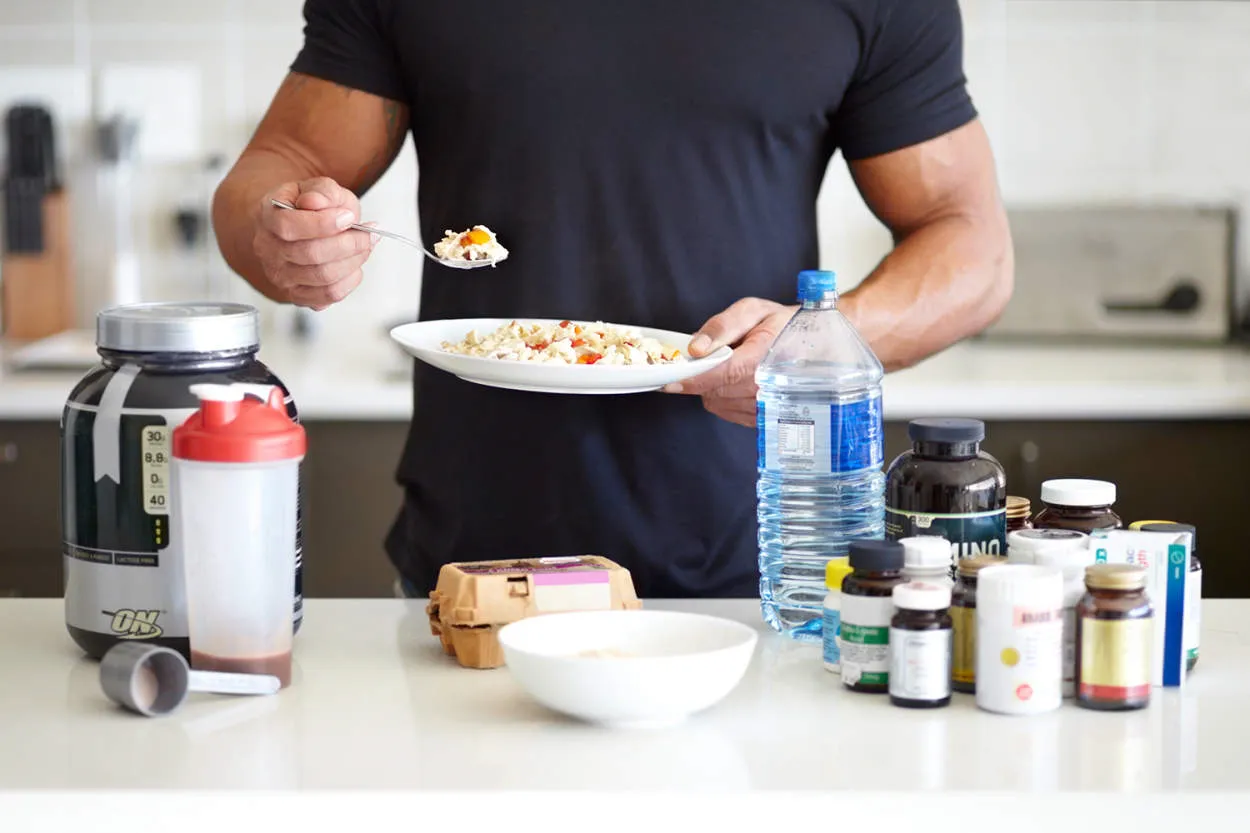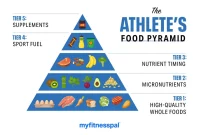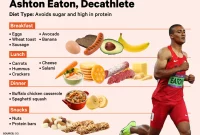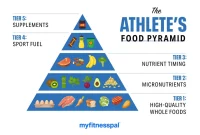Are you looking to enhance your workout performance? It’s time to fuel your training with the right pre-workout meals. Discover the importance of nourishing your body before hitting the gym, along with some nutritious food options that can optimize your energy levels and maximize your results.
Optimal Foods to Eat Before Training
When it comes to maximizing your training performance, fueling your body with the right pre-workout meals is crucial. These meals should provide you with the energy you need to power through your workout, while also promoting muscle recovery and reducing fatigue. Here are some optimal foods to consider including in your pre-training meals:
- Complex Carbohydrates: Foods such as whole grains, sweet potatoes, and quinoa are excellent sources of complex carbohydrates. They provide sustained energy and help maintain stable blood sugar levels during your workout.
- Lean Proteins: Include lean sources of protein like chicken breast, tofu, or Greek yogurt in your pre-training meals. Protein aids in muscle repair and helps prevent muscle breakdown during intense training sessions.
- Fruits and Vegetables: Load up on fruits and vegetables that are rich in vitamins, minerals, and antioxidants. They provide essential nutrients to support overall health and enhance exercise performance.
- Healthy Fats: Incorporate sources of healthy fats like avocados, nuts, and seeds. These fats aid in nutrient absorption and provide a steady release of energy throughout your workout.
Remember to consume your pre-training meal at least 1-2 hours before your workout to allow sufficient digestion time. Hydration is also essential, so don’t forget to drink plenty of water before, during, and after your training session.
By selecting the right combination of foods from each category, you can optimize your pre-workout nutrition and set yourself up for a successful training session. Experiment with different options and find what works best for your body and training goals.
Timing Your Pre-Workout Meals
When it comes to fueling your training, timing your pre-workout meals properly is crucial. The right timing ensures that you have enough energy to perform at your best during your workout while avoiding discomfort or digestive issues.
1. Meal Timing
It is recommended to consume a pre-workout meal around 1-3 hours before your training session. This timing allows your body to digest and absorb the nutrients from the meal, providing a steady source of energy during exercise.
2. Macronutrient Balance
Your pre-workout meal should include a balance of carbohydrates, protein, and a small amount of healthy fats. Carbohydrates provide readily available energy, protein aids in muscle recovery and synthesis, while fats contribute to overall satiety.
3. Digestion Considerations
Each person has different digestive rates, so it’s important to listen to your body. If you experience discomfort or indigestion during exercise, you may need to adjust the timing or the content of your pre-workout meal.
4. Pre-Workout Snacks
If you don’t have enough time for a full meal, a small pre-workout snack can still provide the necessary fuel. Opt for easily digestible options like a banana, yogurt, or a protein bar to give you a quick energy boost.
5. Hydration
Don’t forget the importance of hydration before your workout. Aim to drink enough water or a sports drink to ensure you are adequately hydrated, as dehydration can negatively impact your performance.
In conclusion,
Timing your pre-workout meals plays a vital role in optimizing your training performance. Experiment with different timings and food choices to find what works best for your body and helps you feel energized and ready to tackle your workouts.
Nutritional Strategies for Different Exercise Types
When it comes to fueling your training, it’s important to consider the type of exercise you will be engaging in. Different exercises require different nutritional strategies in order to maximize performance and support recovery. Here are some guidelines:
Endurance Training
For endurance activities such as long-distance running, cycling, or swimming, focus on consuming a balanced meal containing complex carbohydrates, lean protein, and healthy fats about 2-3 hours before your workout. This will provide sustained energy and help prevent muscle breakdown. Examples of pre-workout meals include whole grain toast with peanut butter and banana, or a bowl of oatmeal topped with berries and Greek yogurt.
Strength Training
Prior to strength training sessions, opt for a meal or snack that provides both carbohydrates and protein. This combination will give you the energy needed for intense workouts and support muscle repair and growth. Consider having a turkey sandwich on whole grain bread, or a protein shake with a piece of fruit.
High-Intensity Interval Training (HIIT)
HIIT workouts require quick bursts of intense effort, making it important to have easily digestible carbohydrates before your session. This fuel source will be readily available to power you through each interval. Good options include a small smoothie with banana and spinach, or a piece of fruit with a handful of almonds.
Flexibility and Mobility Training
While flexibility and mobility exercises may not be as demanding in terms of energy, it’s still beneficial to nourish your body beforehand. Aim for a light meal or snack that includes both protein and healthy fats. Examples include a Greek yogurt with nuts, or a small serving of grilled chicken with avocado.
Remember, the timing of your pre-workout meal is important. Allow sufficient time for digestion to avoid discomfort during exercise. Experiment with different foods and meal timing to find what works best for your body and training goals. It’s also important to stay hydrated throughout your workout by drinking water before, during, and after exercise. Proper nutrition and hydration will help you perform at your best and recover effectively.
+
Quick and Easy Pre-Workout Recipes
When it comes to fueling your training, having a nutritious pre-workout meal is essential. By providing your body with the right combination of carbohydrates, protein, and fats, you can maximize your energy levels and optimize your performance. If you’re short on time but still want to fuel up before hitting the gym, here are some quick and easy pre-workout recipes:
1. Banana and Peanut Butter Smoothie
Blend together a ripe banana, a tablespoon of peanut butter, a cup of almond milk, and a scoop of protein powder. This smoothie provides a good balance of carbohydrates, healthy fats, and protein to give you sustained energy during your workout.
2. Greek Yogurt with Berries
Top a cup of Greek yogurt with a handful of mixed berries and a drizzle of honey. Greek yogurt is packed with protein, while the berries provide antioxidants and carbohydrates. This combination is not only delicious but also great for muscle recovery.
3. Whole Grain Toast with Avocado and Eggs
Toast a slice of whole grain bread and spread some mashed avocado on top. Cook two eggs to your preference and place them on the avocado toast. This meal offers a good source of carbohydrates, healthy fats, and protein, giving you the energy you need for a productive workout.
4. Trail Mix
Create your own trail mix with a mix of nuts, dried fruits, and seeds. This snack is quick to prepare and easy to take with you on the go. The combination of healthy fats, fiber, and natural sugars provides a sustained release of energy during your workout.
Remember, everyone’s nutritional needs may vary, so it’s important to find what works best for you. It’s also recommended to consume your pre-workout meal around 1-2 hours before exercising to allow for proper digestion. Experiment with these quick and easy pre-workout recipes to find the ones that fuel your body and help you reach your fitness goals.
The Myth of Carbo-loading Explained
In the world of fitness and nutrition, there has been a long-held belief that “carbo-loading” before a workout or athletic event can enhance performance. However, recent studies have challenged this popular notion, suggesting that the practice of consuming excessive carbohydrates may not provide the benefits that many believe.
Carbo-loading, which involves consuming large amounts of carbohydrates in the days leading up to an event, was originally designed to maximize glycogen stores in the muscles, providing a source of fuel during prolonged exercise. This strategy was particularly popular among endurance athletes.
However, research has shown that our bodies are actually quite efficient at storing glycogen without the need for excessive carbohydrate intake. In fact, consuming more carbohydrates than our bodies can store can lead to increased fat storage and weight gain, without providing any additional performance benefits.
Furthermore, recent studies have shown that the type of carbohydrates consumed may be more important than the quantity. Instead of focusing solely on quantity, athletes should concentrate on consuming complex carbohydrates, such as whole grains, fruits, and vegetables, which provide a steady release of energy and essential nutrients.
It is also worth noting that individual responses to carbo-loading can vary greatly. Some athletes may benefit from a higher carbohydrate intake before an event, while others may not see any significant improvements. Ultimately, it is important for each athlete to experiment and find what works best for their own body.
In conclusion, the myth of carbo-loading as a necessary pre-workout practice has been debunked by scientific research. Rather than loading up on excessive carbohydrates, athletes should focus on consuming a balanced diet that includes the right types of carbohydrates and other essential nutrients.
Conclusion
In conclusion, consuming appropriate pre-workout meals can significantly enhance your training performance and results. These meals should consist of a balance of carbohydrates and protein, providing energy and promoting muscle recovery. Additionally, timing is essential, as consuming these meals around 1-2 hours before your workout allows for proper digestion and optimal energy levels. Remember, what you eat before training can make a big difference in your overall performance. So, choose your pre-workout meals wisely and fuel your training for success.




